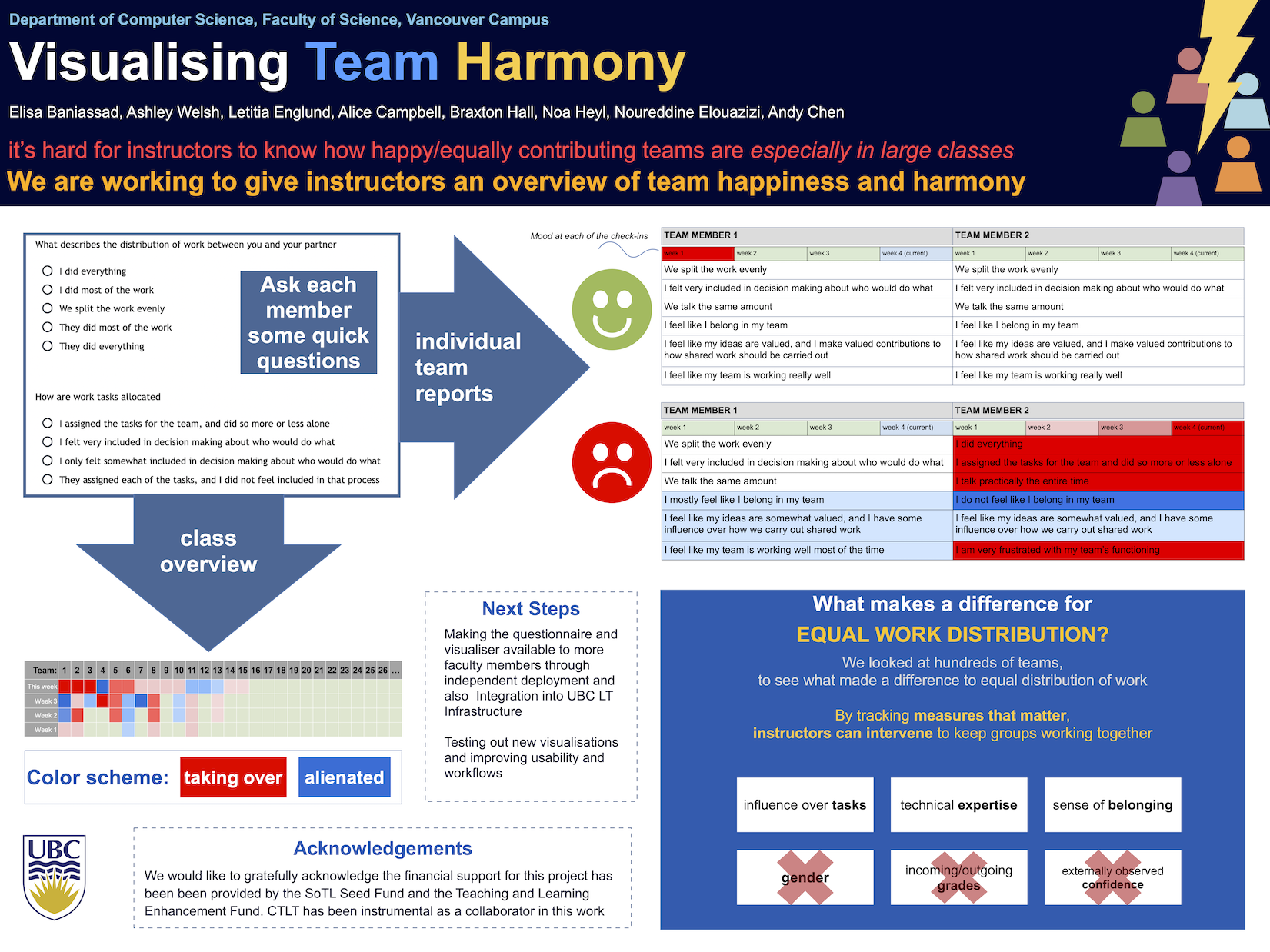| Title | Visualizing inclusion to support equity in student group learning |
|---|---|
| Faculty/College/Unit | Science |
| Status | Active |
| Duration | 3 Years |
| Initiation | 04/01/2020 |
| Funding Details | |
| Year 1: Project Year | Year 1 |
| Year 1: Funding Year | 2020/2021 |
| Year 1: Project Type | Small TLEF |
| Year 1: Principal Investigator | Elisa Baniassad |
| Year 1: Funded Amount | 24,241 |
| Year 1: Team Members | Elisa Baniassad, Sr. Instructor, Computer Science, Faculty of Science Student Team Members: Braxton Hall, Undergraduate Student, Computer Science Collaborators: Toni Schmader, Professor, Psychology, Faculty of Arts / Canada Research Chair in Social Psychology |
| Year 1: Summary | Group work is a valuable tool for enriching student learning, but its use can also be “riddled with social inequities” (Patterson 2019). Instructors often have well honed strategies for supporting students in groups, but in large classes it can be difficult to monitor group dynamics and to identify groups that need additional help. With SOTL Seed and Skylight Development Grant funding, we developed and piloted a tool that elicits feedback from students and depicts their responses visually such that instructors can spot and intervene with imperiled groups. The goal of this Small TLEF proposal is to enhance the current visualization prototype to meet the needs of more diverse classroom contexts. Within the tool, we will provide a validated set of questions on a Check-in instrument for student feedback and support materials for instructors to customize these for their specific classroom contexts. |
| Year 1: TLEF Showcase |  |
| Year 2: Project Year | Year 2 |
| Year 2: Funding Year | 2022/2023 |
| Year 2: Project Type | Small TLEF |
| Year 2: Principal Investigator | Elisa Baniassad |
| Year 2: Funded Amount | 18,726 |
| Year 2: Team Members | Elisa Baniassad, Associate Professor of Teaching, Computer Science, Faculty of Science Collaborators: Alex Summers, Associate Professor, Computer Science, Faculty of Science |
| Year 2: Summary | Group work is valuable but is “riddled with social inequities” (Patterson`19). Instructors often have well honed strategies for helping teams, but in large classes they are unable to even identify which teams are in trouble. Our work reveals that a quarter or more of teams are in trouble but only a small selection would self identify. COVID has exacerbated these effects. Thanks to Year 1 of Small TLEF funding, we have created a prototype that allows instructors to automatically form their own Qualtrics surveys, based on a bank of pre-suggested questions, and to assign qualitative codes to the responses. The survey responses can then be visualised using an associated tool to provide an overview of the health of the team. This is currently in the piloting phase with more work being needed to fully establish how to bring it to the broader UBC community, potentially through integration with iPeer. |